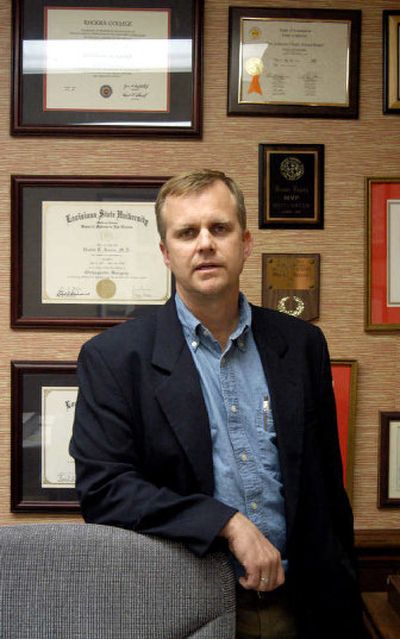Brain drain afflicts New Orleans

NEW ORLEANS — It wasn’t the flooding that drove Dr. David Jones out of New Orleans for good. His house in the Lakeview neighborhood stayed dry. Instead, it was the way Hurricane Katrina eroded the orthopedic surgeon’s practice.
With fewer patients to treat and no patience for the sluggish pace of the city’s recovery, he moved his family and practice to Raleigh, N.C., in July.
“I love New Orleans and always will,” said Jones, 39, who now works at a hospital affiliated with Duke University. “I could have made a go of it there, but it would have been slow and arduous.”
New Orleans is losing an alarming number of young professionals in Katrina’s aftermath. Many doctors, lawyers, architects, engineers and other highly educated people are gone. Some left during the storm and never came back. Others came back, but soon gave up and moved out altogether.
Whether a full-blown brain drain is under way is unclear. But some suspect so, and fear the exodus will only get worse.
“They don’t see the career opportunities here that they see elsewhere,” said University of New Orleans political science professor Susan Howell.
For many professionals trying to make a living here, the number of patients and clients has dropped off drastically. Less than half New Orleans’ pre-Katrina population of 455,000 has returned.
A recent survey by the University of New Orleans suggests the loss of the region’s best educated, most talented and highly trained workers could worsen. One-third of residents surveyed in October said they are likely to leave within two years, and those with postgraduate degrees were even more likely to consider leaving.
Health care has been especially hard-hit. Thousands of doctors, nurses and medical technicians were evacuated after Katrina in August 2005. Sixteen months later, only five of 11 hospitals are open, just one at full capacity.
According to another UNO survey, the city has regained less than 60 percent of its non-hospital physicians and its private education jobs. A similar percentage of professional, scientific and technical workers, including lawyers, engineers and architects, had yet to return more than a year after the storm, the survey found.
One who came back but plans to leave again is Jennifer Lange. Lange, 33, was president of the Young Leadership Council, an organization of young professionals, when Katrina hit. A marketing manager for Isidore Newman School — whose graduates include the NFL’s Manning brothers — she evacuated to Houston, then came back a few months later.
But her job was one of about 90 eliminated by the private school, and she found herself working at a lower salary for an insurance and benefits company.
Now, she plans to move back to Houston, where she and her fiance, financial planner Thomas Brandino, will wed next year.
“I never wanted to leave,” she said, “but he looked around and couldn’t find a job here.” Still, Lange is optimistic: “We’ll be back one day. He’s promised me.”